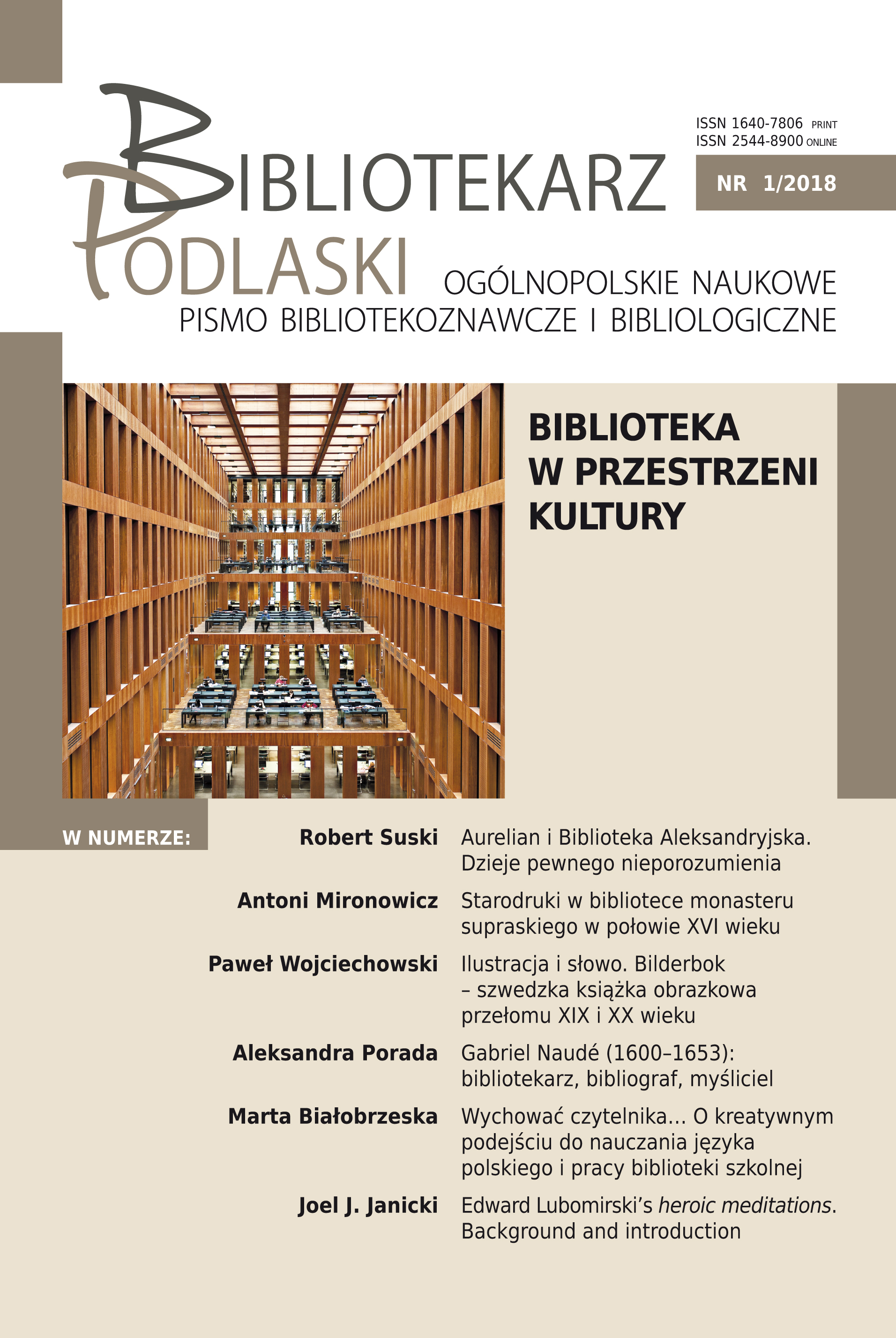Abstract
The article analyzes the image of the prophet Wernyhora in the works of the nineteenth-century Polish writer Franciszek RawitaGawroński. The article follows the stages of development of the prophet`s vision and its intertextual connection to the images of Vernyhora in the texts by author. A detailed analysis of the works by Gawroński on the topic of Ukrainian-Polish relations was carried out and the question of the creation of Wernyhora in this context was carried out too.
References
Jakowenko J., Do pytania ukrainskoho wymiru zytia i tworczosti Franciszka Rawity-Gawronskoho, „Kyjiwski Polonistyczni Studii” 2016, T. 27, s. 285-297.
Janion M., Żmigrodzka M., Romantyzm i historia. Legenda Wernyhory, Warszawa 1978.
Kasjan J.M., Wernyhora — postać z polsko-ukraińskiego pogranicza, «Warszawskie Zeszyty Ukrainoznawcze” 1998, nr 6-7.
Kyrcziw R.F., Ukrainskyj folklor u polskij literaturi: (period romantyzmu), Instytut suspilnych nauk, AN URSR, Kyjiw: Naukowa Dumka, 1971, 275 s.
Klinger W., Wernyhora i jego proroctwa w świetle krytyki historycznej, „Przegląd Współczesny” 1934, t. 4, s. 118-138.
Korotkyj W., Michal Czajkowskyj i Wolodymyr Antonowycz: „Ukrainska szkola” polskoi romantycznoi literatury i stanowlenia ukrainofilstwa: monografia, Winnica, TOW „Nilan-LTD” 2015, 176 s.
Kostruba P., Jeszcze raz Wernyhora i jego proroctwa. Obecny stan zagadnienia w świetle nowych badań, „Problemy Europy Wschodniej” 1939, nr 5, s. 309-324.
Kostruba P., Wernyhora. Zarys historii legendy, „Pamiętnik Literacki” 1935, 32/1/4, s. 390-415.
Kozak S., Szewczenkoznawczi ta poriwnialni studii. Statti. Rozwidky. Lekcii, Wydawnyctwo Instytutu mystectwoznawstwa, folkliorystyky ta etnologii im. M. Rylskoho NANU, 2012, s. 267.
Makowski S., Wernyhora. Przepowiednie i legenda, Warszawa 1995, 272 s.
Nachlik E., Tworczist’ Juliusza Slowackoho i Ukraina. Problemy ukrainsko-polskoi literaturnoi komparatywistyky, L. [b.w.], 2010, 287 s.
Pigoń S., Jeszcze o tzw. przepowiedni Wernyhory, „Pamiętnik Literacki” 1960, 51/4, s. 463-472.
Rawira-Gawroński F., Złotobrody Emir. Powieść ukraińska, Lwów 1891.
Rawita-Gawroński F., Śmierć Wernyhory. Baśń ukraińska, „Tygodnik Illustrowany” 1891, nr 26, s. 507-510.
Rawita-Gawroński F., Wernyhora i jego proroctwa, „Czas” 1916, nr 424-426.
Rawita-Gawroński F., Król i carowa. Powieść z końca XVIII wieku, Poznań – Warszawa 1920.
Rawita-Gawroński F., Ludzie i czasy mego wieku. Wspomnienia, wypadki, zapiski (1892–1914), T.1, Gdańsk 2012.
Rawita-Gawroński F., Na krasnym dworze. Powieść historyczna z czasów pobytu w Kijowie Bolesława Śmiałego, Warszawa 1889.
Rawita-Gawroński F., Na kresach. Opowiadanie historyczne z XVIII wieku, Warszawa 1886.
Rawita-Gawroński F., Pan hetman Mazepa, Warszawa 1887.
Sosnowska D., Przesłanie Wernyhory. O romantycznej fascynacji Ukrainą, „Przegląd Wschodni” 1991, T. I, z. 4.
Stabryła W., Wernyhora w literaturze polskiej, Kraków 1996.
Wasylenko W., „Spytaj u witru: chto ce – Wernyhora?”, Kalendar „Blagowista” na 1995 r., Hurowo-Ilaweckie, Polsza, 1995.
Ziejka F., Literacka legenda o Wernyhorze, „Rocznik Komisji Historycznoliterackiej PAN — Oddział w Krakowie” XIII (1975).
Ziętarska J., Franciszek Rawita-Gawroński 1846–1930, [w:] Obraz literatury polskiej... Literatura polska w okresie realizmu i naturalizmu, T. 3, oprac. J. Kulczycka-Saloni, H. Markiewicz, Z. Żabicki, Warszawa 1969, s. 449.
Articles published in the “gold open access” mode on the basis of a non-exclusive license agreement between the publisher and the author. Permitted use:
- the publication may be read and stored on any device,
- the publication may be cited (with obligatory reference to the author, the title of the text, as well as the full title, bibliographic address of the issue and page of the journal)
The editorial team of “Bibliotekarz Podlaski” implements an open access policy by publishing materials in the form of the so-called Gold Open Access. From volume 42 (issue 1/2019), the journal is available under the Creative Commons license (Attribution – ShareAlike: CC BY-SA).
The key declarations of the Open Access and Open Science movement, which we fully support, are available on the CEON Open Science website.
COPYRIGHT:
The editorial team of “Bibliotekarz Podlaski” implements an open access policy by publishing materials in the form of the so-called Gold Open Access. The journal is available under the Creative Commons license – Attribution – ShareAlike 4.0: International: CC BY-SA 4.0).
The key declarations of the Open Access and Open Science movement, which we fully support, are available on the CEON Open Science website.
“Bibliotekarz Podlaski” allows its readers to read, download, copy, distribute, print, search and link to the full content of articles. We enable full, immediate, unlimited (both in a territorial, temporal and technical sense) open access to all published content, in accordance with the principle that freely available research increases and accelerates the global development of science and the exchange of knowledge.
The editorial team of “Bibliotekarz Podlaski” encourages authors to place articles published in the journal in open repositories (after the review or the final version of the publisher), provided that a link to the journal’s website is provided.
The journal does not charge the authors any fees for accepting and publishing their texts.

